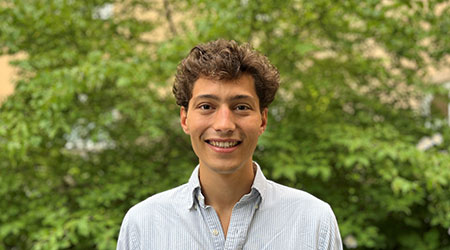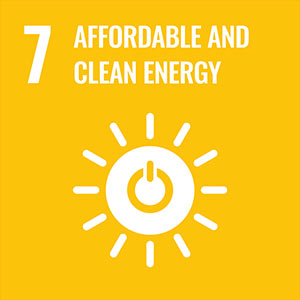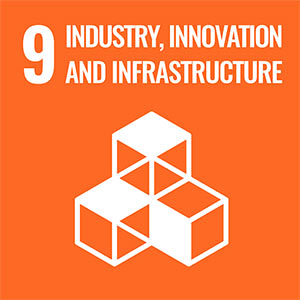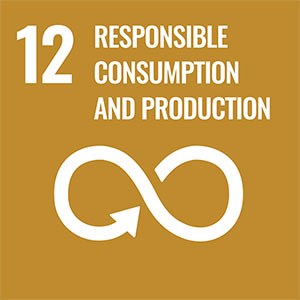MSc Chemical Engineering for Energy and Environment
The master's programme in Chemical Engineering for Energy and Environment delivers extensive knowledge in the diverse field of Chemical Engineering with a focus on sustainability. You will acquire modern tools to analyse various processes, from the production of biofuels to the purification of drinking water. Graduates have the engineering skills needed to meet the societal challenge of how best to use our available energy and finite natural resources.

Chemical Engineering for Energy and Environment at KTH
In this programme, you will gain advanced knowledge and skills in chemical engineering and obtain modern tools to analyse various processes. These processes can be anything from producing biofuels and energy storage to purifying drinking water and exhaust gases. You will acquire competence throughout the whole chain, from raw materials to the final product. The analyses of the processes often include aspects of chemicals, heat, electricity and the environment.
Year one and the first semester of the second year consist of one mandatory course in the theory and methodology of science with applications as well as conditionally elective and recommended courses, allowing you to design your education to meet your personal and professional goals. The remainder of year two consists of a mandatory project course in process design for industry and society. During the last semester, you will carry out a degree project at a company, at KTH, or another university or research institute around the world.
Complementary skills such as problem-solving and teamwork are emphasised in many courses, as are written and spoken communication. Therefore, most courses offer seminars and project assignments to complement traditional lectures. A majority of the courses include laboratory work in the research labs. The education is closely linked to the research conducted at the School of Engineering Sciences in Chemistry, Biotechnology and Health at KTH in general and the Department of Chemical Engineering in particular. The programme also has close links to the Swedish industry, especially the motor vehicle industry through Scania and Volvo, and the energy utility industry through Fortum och Vattenfall. The programme provides an excellent basis for activities in countries outside Sweden, as most of the teachers have close contact with foreign universities and companies. There are good opportunities to study parts of the programme abroad through student exchange with other prominent universities in the field of chemical engineering or carry out the degree project abroad.
This is a two-year programme (120 ECTS credits) given in English. Graduates are awarded the degree of Master of Science. The programme is given mainly at KTH Campus in Stockholm by the School of Engineering Sciences in Chemistry, Biotechnology and Health (at KTH).
Students
Find out what our student from the programme thinks about his time at KTH.

Career
The job market for engineers graduating from the programme is broad and international. Advanced skills in chemical engineering combined with an environmental focus provide an excellent basis for various careers in industry, government agencies, and academia.
Chemical engineers with a specialisation in energy and the environment are very attractive for many different branches of industry, such as suppliers of energy carriers and chemicals, the pulp and paper industry, the vehicle industry, and companies specialising in environmental issues such as the recycling of materials.
Programme graduates can be found in traditional Swedish industry, small start-up companies, consultant companies, governmental institutions, research institutes and universities. Examples of companies that employ chemical engineers from KTH are energy utlity companies such as Fortum, Stockholm Exergi, and Vattenfall, companies in the pulp and paper industry, e.g. Holmen and Stora Enso as well as research institutes like RISE and IVL, chemical production companies like Akzo Nobel and Nynäs, and car and truck manufacturing companies like Scania (buses and trucks), Volvo AB (buses, trucks and construction machines), and Volvo Cars (cars). Many graduates also continue their academic careers with doctoral level studies. The need for engineers with the competence offered by the programme will continue to be great in the future.

Sustainable development
Graduates from KTH have the knowledge and tools for moving society in a more sustainable direction, as sustainable development is an integral part of all programmes. The three sustainable development goals of the United Nations that best align with the focus of the master’s programme in Chemical Engineering for Energy and Environment are:



The aim of these goals is the development of a sustainable society through innovation and technological advances. The programme provides tools for developing future sustainable systems for heat, electricity and material production and potentially environmentally friendly technologies such as batteries and fuel cells. The programme also provides the ability to develop new chemical engineering processes, such as sustainable resource recovery processes, which are one of the challenges in the transition to a circular economy.
Faculty and research
The master’s programme in Chemical Engineering for Energy and Environment is given by the Department of Chemical Engineering at the KTH School of Engineering Sciences in Chemistry, Biotechnology and Health. The Department of Chemical Engineering conducts research focused on some major themes: manufacturing of pharmaceuticals, functional surfaces, and environmental technology and energy conversions.





